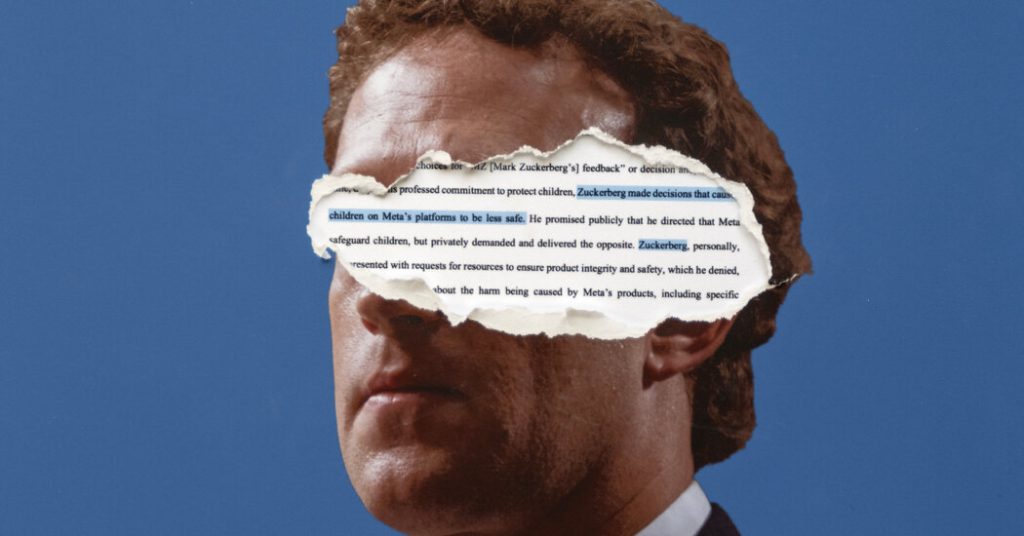Meta faced scrutiny for the impacts of its products on issues such as loneliness and compulsive use, especially concerning teens. Despite proposals from employees to research and reduce these issues, the project was ultimately not funded due to staffing constraints. Over a dozen lawsuits have been filed by the attorneys general of multiple states alleging that Meta unfairly targets teenagers and children on Instagram and Facebook while downplaying the risks involved. This is seen as a coordinated approach to hold Meta accountable and strengthen protections for minors.
State attorneys general believe that Meta prioritized user engagement over child welfare, with Mr. Zuckerberg facing criticism for decisions that have impacted young users negatively. Concerns about teenagers being targeted for sexual solicitation, bullying, and body shaming on social media have heightened, leading to calls for warning labels on the platforms. Legislation like the Kids Online Safety Act could require social media companies to turn off features for minors that could lead to addictive behaviors. Meta has disputed these claims and emphasized its commitment to youth well-being through various safety tools and features.
Parents who have faced tragic outcomes linked to online harms, such as the suicide of their children following online exploitation, dispute Meta’s safety assurances. Despite the company’s claims to have safety protections in place, parents believe that the measures are not sufficient to protect children from the risks they face online. The ongoing legal battles between Meta and state attorneys general highlight the divide between the company’s claims of ensuring youth safety and the reality faced by those impacted by online dangers.
Internal company documents reveal Meta’s focus on attracting and retaining teenagers, including strategies to increase teen time spent on its platforms. The introduction of features like Instagram Stories and the company’s emphasis on youth projects reflect Mr. Zuckerberg’s goal to engage young users. Concerns over underage users and compliance with children’s online privacy laws have also been raised, with estimates showing millions of children under 13 having Instagram accounts. The company has faced scrutiny over its practices and protections for children on its platforms.
Internal debates within Meta over features like beauty filters on Instagram have underscored tensions over teenage mental health. While some executives raised concerns about the impact of appearance-altering filters on young users, the desire to attract more users prevailed. The company has implemented restrictions on specific beauty filters to indicate when users are using effects that promote cosmetic surgery, changes in skin color, or extreme weight loss. This highlights the challenges faced by the company in balancing user engagement with youth safety measures.
Concerns over youth safety have prompted internal discussions within Meta to address mounting regulatory concerns and potential legal actions. Despite requests for additional funding and staff to enhance youth well-being efforts, the company faced setbacks in meeting these needs. The push to protect users’ mental health resonated with internal debates over product decisions, such as the use of beauty filters on Instagram. As Meta navigates legal challenges and public scrutiny, the company continues to face allegations of not doing enough to ensure the safety of minors on its platforms.










